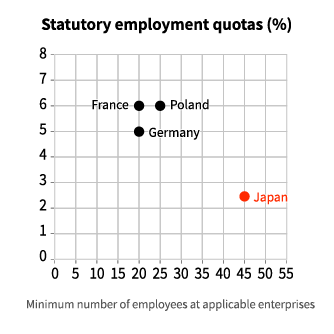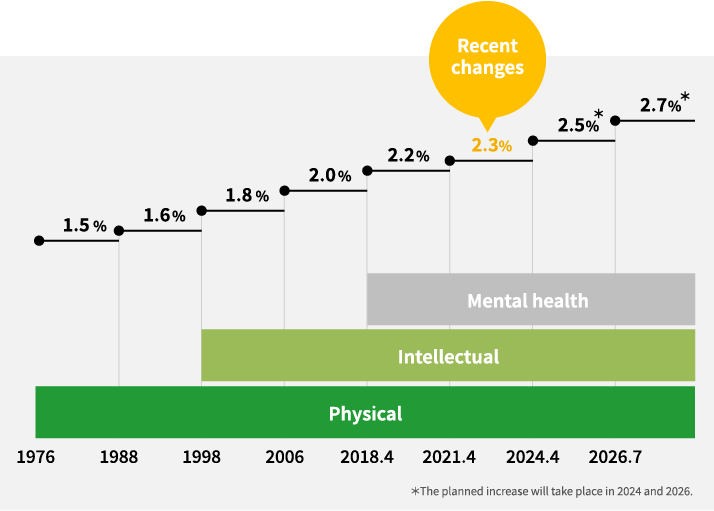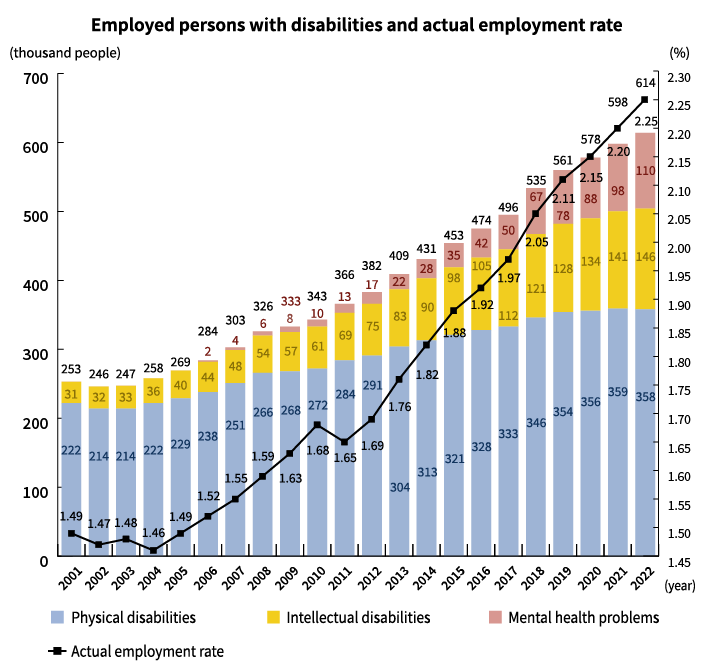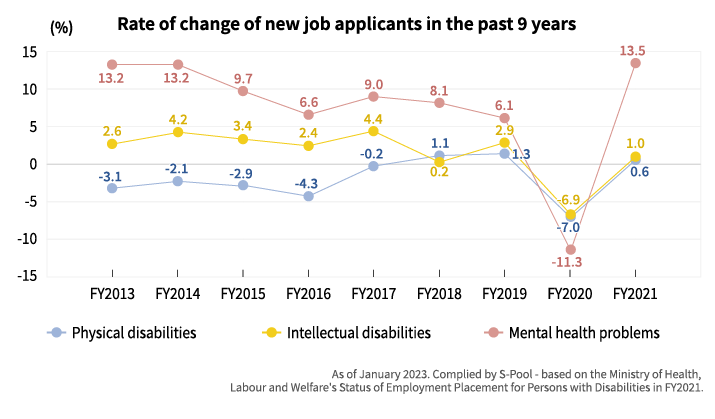Employment support for persons with disabilities
- Home
- Investor Relations
- Employment support for persons with disabilities
Special Needs Employment Service drives S-Pool's growth. This special feature introduces the reasons for the sharp growth of these services, the characteristics of our business model, and our future growth strategies.
1How is Japan different?
Current employment for those with disabilities, indicated by international data.
- 2.3%
- is the statutory employment quota for persons with disabilities in Japan's private sector
- 50%
- is the attainment rate, according to the Ministry of Health, Labour, and Welfare
Statutory employment quotas, international comparisons
In Japan, the law determines the employment quota for persons with disabilities. For private enterprises, the quota was raised from 2.2% to 2.3% in March 2021, and a further increase to 2.7% is planned in 2026. Japan's quota is low compared to other countries with statutory employment quotas. Although differences in quota conditions and requirements makes a simple comparison difficult - it is clear that Japan lags behind other nations.

Japan lags behind other countries in the employment of persons with disabilities
Enhancing employment support policies for persons with disabilities is a priority issue for the Japanese Government
Changes in the statutory employment quota for persons with disabilities and in the targets of the quota

What challenges do corporations face?
- Issues for large companies
- Increased competition due to the increase in the statutory employment quota
- Limited positions available depending on industry
- Low employee retention rate
- Issues for SMEs
- Lack of experience in employing those with disabilities
- Increase in workplace issues due to poorly-suited placement
What issues do companies face?
Japanese companies need to strengthen their hiring policies for persons with disabilities to comply with the statutory employment quota for a number of reasons. Failure to meet the quota results in fines, disadvantages in bidding for public sector contracts, and a damaged reputation due to public disclosure of their company name. However, companies face problems in both the hiring and management stages of employment. In the hiring stage, companies need to place workers in positions that match workers' abilities, while employee retention is a problem in the management stage.
more
- Q. What are the employment issues in Japan?
- A. Japan needs to facilitate employment for those living with intellectual disabilities and mental health problems.


In Japan, those with physical disabilities make up the largest percentage of employees with disabilities. However, job application rates are falling for those with physical disabilities, while it's rising for those with intellectual disabilities and people living with mental health problems.
What are the difficulties in employment services?
- For persons with physical disabilities The market is saturated
- Barrier-free access makes it relatively simple to employ those with physical disabilities. That's why the market for job matching services is saturated.
- For persons with intellectual disabilities For persons living with mental health problems There is not enough support
- Companies struggle to find work for persons with intellectual disabilities and those living with mental health problems because it requires adequate follow-up systems, which restricts job type and work environments. As a result, the circumstances often prevent those who want to work from working.
Most support services have been publicly funded and authorized by central and local governments, with few private sector services.
close